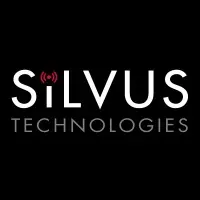Machine Learning Engineer
HangFull Time
Senior (5 to 8 years)
Los Angeles, California, United States

Key technologies and capabilities for this role
Common questions about this position
The position is based at Silvus Technologies’ headquarters in West Los Angeles, CA, on a hybrid schedule requiring a minimum of 3 days onsite per week (Mondays, Wednesdays, and Thursdays).
This information is not specified in the job description.
The role requires a strong background in wireless communications and machine learning, with responsibilities including researching and implementing ML algorithms for wireless systems, analyzing RF datasets, developing prototypes, and collaborating with cross-functional teams.
Silvus features an incredibly talented group of passionate, skilled, and creative individuals focused on challenging work and innovation to keep heroes connected, with rapid growth fueled by research.
A strong candidate has a strong background in wireless communications and machine learning, with the ability to work closely with experts in wireless communications, DSP, networking, and embedded systems on the innovative R&D team.

Develops advanced wireless communication systems
Silvus Technologies specializes in advanced wireless communication systems, focusing on mission-critical and tactical applications. Their main product line, the StreamCaster family of MANET radios, utilizes Multiple Input Multiple Output (MIMO) technology to enable high-speed wireless connectivity in challenging environments. This technology allows for the simultaneous transmission and reception of multiple data signals, enhancing communication reliability, especially in complex settings like urban areas or disaster zones. Silvus primarily serves clients in defense, public safety, and industrial sectors, providing dependable solutions that meet high performance standards. Unlike many competitors, Silvus designs, assembles, and tests its products in-house, ensuring quality control. The company's goal is to deliver reliable communication systems that operate effectively under demanding conditions.